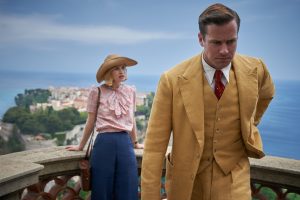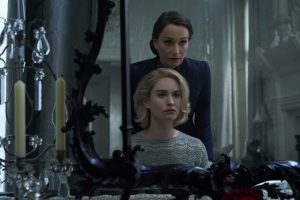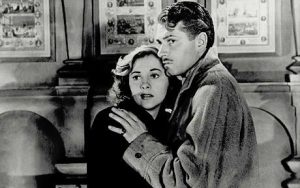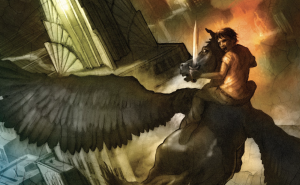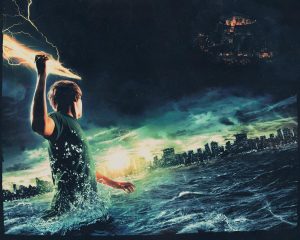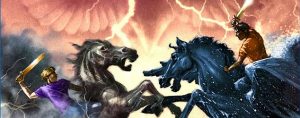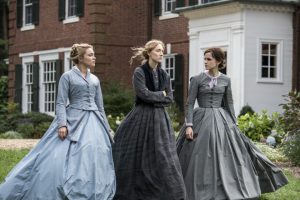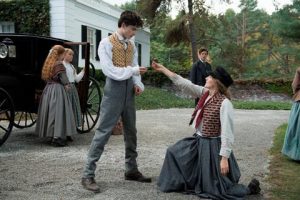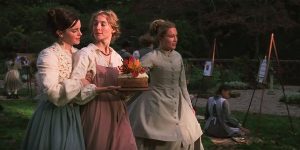You’d think Apple TV+ would do a better job of promoting a show like Foundation. In a world where every new streaming service needs at least one or two major franchises to lure in subscribers and keep them around in expectation of sequels and spinoffs, Apple TV+ is still on the search for even one that has that potential. Foundation, meanwhile, is (loosely) based on one of the most successful science-fiction novels of all time, giving it the benefit of brand recognition and mainstream appeal. Lee Pace’s involvement certainly doesn’t hurt either, as the actor has recently become quite popular on social media.
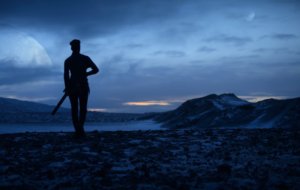
Ultimately, the big question will be whether or not Asimov’s Foundation – a collection of short stories first published as a single book seventy years ago – has staying power in the 21st Century, when there is simply so much sci-fi media available for consumption. And Apple’s Foundation isn’t even adapting all five of the short stories in Asimov’s original collection, further diluting the fanbase; instead, a mostly original plot has been constructed around the events of the first and possibly second stories, but padded out to series length by reams of new content based on Asimov’s two prequel novels to Foundation, which he published much later in life. At this point, most fantasy and sci-fi plots are less convoluted and confusing than the meta narrative of what’s being adapted from what, and what’s wholly original.
Though that being said, the plot of the original Foundation is not exactly easy to wrap one’s head around, either – and I know no more about Prelude To Foundation or Forward The Foundation, Asimov’s Foundation prequels, than I did back when I reviewed the first trailer for this upcoming series. I’ve never read either book, unfortunately, so all I can say with absolute certainty is that the sprawling, multi-generational story of the saga begins near the very end of a 12,000 year Galactic Empire, which legendary psychohistorian Hari Seldon has determined will collapse in just 300 years, bringing about a dark age lasting 30,000 years. Foundation itself (which I have read; it’s fantastic, by the way) picks up with Seldon as he’s on trial for his theories. He informs the Empire that the best they can hope to do, since the present is unsalvageable and destined for ruin, is to compile all human knowledge into an Encyclopedia – the construction of which Seldon offers to begin, along with a group of loyal devotees. They become the titular Foundation.

There’s also a Second Foundation that gets set up in secret along the way, and it turns out that Seldon wasn’t entirely telling the truth about his motives, but I’m trying to avoid spoilers because I want general audiences to be surprised by whichever direction the show takes with the source material. I appreciate that the new trailer really hammers home the idea of not being able to save one’s present, only the promise of a future. That feels very genuine to the spirit of the books, and gives me hope that the series won’t just be a bunch of action scenes, and space battles, and political intrigue. Fascinating as those things all may be, they’re not what Asimov was really interested in exploring. On the other hand, I understand the need for structural changes: Foundation‘s first segment is basically a lot of exposition-heavy dialogue between Seldon and the mathematician Gaal Dornick, so it makes sense to disperse that exposition across the series and give Dornick a more active role as a protagonist.
I also really like that Dornick and several other major characters, some original and some from the books, are people – and particularly women – of color in this adaptation, diversifying what was originally a very white, and very male, story. For instance, both Dornick and the Foundation’s first Mayor, Salvor Hardin, are Black women, played by Lou Llobell and Leah Harvey, respectively. T’Nia Miller and Alfred Enoch also have large roles, although their characters seem to have been created for the show. Most of the characters are original, to be honest: even the main villain, the immortal emperor Brother Day, has no clear precedent in the books.
But Brother Day will be portrayed by Lee Pace – the biggest star attached to the series and the one most likely to lure in audiences unfamiliar with the actual source material (although I’d wager Enoch’s name still carries some weight with Harry Potter fans, and viewers of The Crown might tune in just for Jarred Harris’ Hari Seldon). Pace is very popular with a lot of people who know him from the Marvel Cinematic Universe, The Hobbit trilogy, and from his role in Pushing Daisies, and Twitter recently came to the consensus that he’s criminally underrated and doesn’t get enough work, so Foundation could be a good opportunity for fans to turn that noble sentiment into Apple TV+ subscriptions and streaming numbers.
Pace is also exceptionally good at playing villains, so this role is pretty much tailor-made for him – although to be honest, I totally get that he’s the “bad guy” because he’s trying to suppress Hari Seldon’s research and that his tyrannical rule is what’s causing the rapid descent of the Galactic Empire into chaos and ceaseless violence, but how bad can a 30,000 dark age really be, if it’s 30,000 more years of Lee Pace’s eyebrows? I just think we should consider what we’d be losing if we chose intergalactic peace and prosperity.
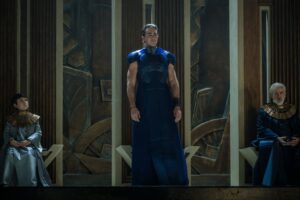
Brother Day’s ability to regenerate every so often means Lee Pace could easily bypass the infamous time-jumps between Foundation segments and become a recurring villain for future generations of Encylopedists. Call me a casual fan, but I wouldn’t have a problem with that – as long we still get to see The Mule at some point, because honestly Foundation And Empire is the entire reason I love the saga as a whole.
Trailer Rating: 7/10

